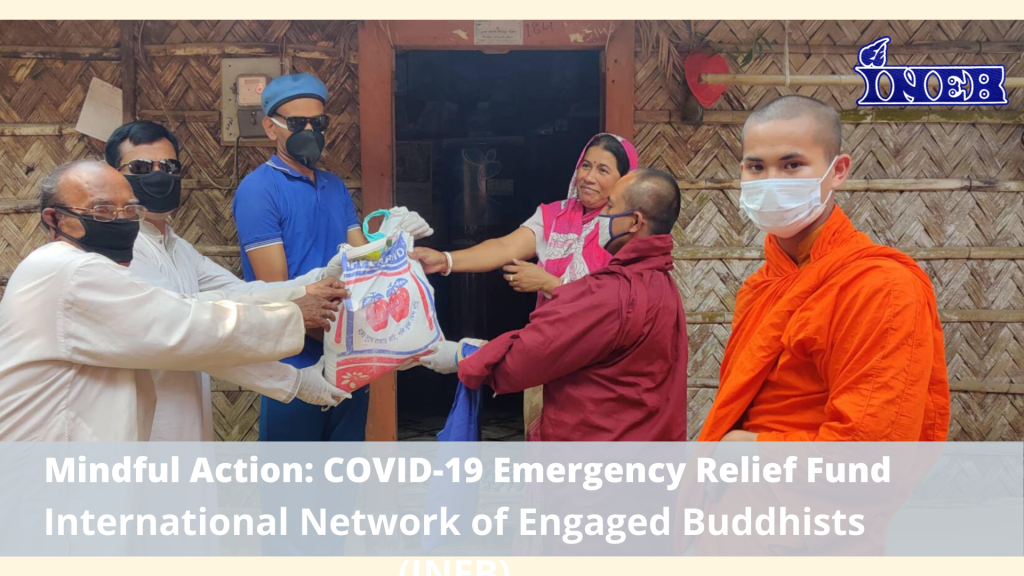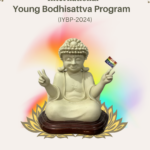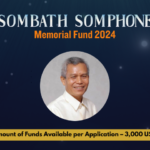[et_pb_section fb_built=”1″ admin_label=”section” _builder_version=”3.22″][et_pb_row admin_label=”row” _builder_version=”3.25″ background_size=”initial” background_position=”top_left” background_repeat=”repeat”][et_pb_column type=”4_4″ _builder_version=”3.25″ custom_padding=”|||” custom_padding__hover=”|||”][et_pb_gallery gallery_ids=”33197,33464,33199,33200,33201,33202″ fullwidth=”on” _builder_version=”4.4.8″ animation_style=”slide” auto=”on” auto_speed=”3000″][/et_pb_gallery][/et_pb_column][/et_pb_row][et_pb_row _builder_version=”4.4.3″][et_pb_column type=”4_4″ _builder_version=”4.4.3″][et_pb_accordion _builder_version=”4.7.7″ background_color=”#d6d6d6″ use_background_color_gradient=”on” background_image=”https://inebnetwork.org//wp-content/uploads/2020/04/cover.jpg” background_blend=”soft-light”][et_pb_accordion_item open=”on” _builder_version=”4.4.4″]
Why Support the INEB COVID-19 Emergency Relief Fund?
In response to the unbearable levels of suffering among the poorest and most marginalized communities in South and Southeast Asia, the International Network of Engaged Buddhists (INEB) has set up a COVID-19 Emergency Relief Fund. As we write to you, the World Food Program is warning of a famine of biblical proportions as a direct result of the COVID-19 pandemic. Our network partners are already providing food and medical relief and we know the most critical needs will increase exponentially over the coming weeks. Our goal is to be able to increase our response to the most urgent needs for food supplies, hygiene and sanitary supplies, in addition to medicine, hospital beds, and toilets.
We know this is a difficult time to ask for your support, but this is the moment when even a small contribution can save lives.
[/et_pb_accordion_item][/et_pb_accordion][/et_pb_column][/et_pb_row][et_pb_row column_structure=”1_3,1_3,1_3″ _builder_version=”4.7.7″ _module_preset=”default”][et_pb_column type=”1_3″ _builder_version=”4.7.7″ _module_preset=”default”][et_pb_button button_url=”https://inebnetwork.org/wp-content/uploads/2021/01/Final-JTS-report-on-medical-materials-for-Myanmar.pdf” button_text=”Report on Medical Materials for Myanmar” _builder_version=”4.7.7″ _module_preset=”default”][/et_pb_button][/et_pb_column][et_pb_column type=”1_3″ _builder_version=”4.7.7″ _module_preset=”default”][et_pb_button button_url=”https://inebnetwork.org/mindful-action-covid-19-emergency-relief-fund-april-2020-march-2021-final-report/” button_text=”Mindful Action Report” button_alignment=”center” _builder_version=”4.8.2″ _module_preset=”default” hover_enabled=”0″ sticky_enabled=”0″][/et_pb_button][/et_pb_column][et_pb_column type=”1_3″ _builder_version=”4.7.7″ _module_preset=”default”][et_pb_button button_url=”https://inebnetwork.org//donation/” button_text=”Click to donate now! ” button_alignment=”center” _builder_version=”4.4.3″ custom_button=”on”][/et_pb_button][/et_pb_column][/et_pb_row][et_pb_row _builder_version=”4.7.7″ _module_preset=”default”][et_pb_column type=”4_4″ _builder_version=”4.7.7″ _module_preset=”default”][et_pb_text _builder_version=”4.4.4″]
Founded in 1989 in Siam (Thailand), the International Network of Engaged Buddhists (INEB) is a vast global network of ordained and lay Buddhists working to integrate the practice of Buddhism with social action for a healthy, just and peaceful world. For 30 years INEB has been pioneering grassroots, community led solutions to end poverty, inequality and social injustice among the poorest and most marginalized communities in South and Southeast Asia. This commitment to a global community, based on the universal truths of wisdom and compassion, guides all our activities. As practitioners of a buddhism with a small “b” – in the words of our founder, Ajahn Sulak Sivaraksa – we actively work with social activists, spiritual leaders, academics and young people from Buddhist as well as non-Buddhist backgrounds. Click here to read more about INEB
[/et_pb_text][et_pb_text _builder_version=”4.4.4″]
The communities that we work with in India, Nepal, Bangladesh and Myanmar are those that are often ignored or actively discriminated against even by their own governments. They need our help to survive the pandemic. Thanks to our global network of organizations we have unparalleled access to some of the most at-risk communities, enabling us to distribute emergency relief quickly, efficiently and equitably.
The COVID-19 pandemic has brought the global economy to a standstill and exposed even more clearly the social distortions and growing inequalities of our present global order. We are all suffering together, especially the most vulnerable groups, even in rich countries. Persons living in poverty and on the margins of society – whether by race, religion, class, citizenship or place of birth, or gender – have been the most vulnerable to the disease on a variety of levels: crowded living conditions and the absolute need to continue to work that increases exposure, weaker immune systems from the effects of poverty (stress, diet, etc.), and poorer access to testing and medical services.
[/et_pb_text][et_pb_text _builder_version=”4.4.3″]
To respond to the COVID-19 crisis INEB has developed a three-part initiative:
1. Forming an emergency response fund – Mindful Action: COVID-19 Emergency Response Fund – to support the most vulnerable groups in regions and countries in the INEB network, specifically in South and Southeast Asia.
2. Issuing a statement of solidarity with other religions to call for an end to responses to the pandemic that inflict suffering on vulnerable and marginalized groups while encouraging action to provide immediate and long-term support to these groups. Click here to see the statement
3. Developing a four-part strategic plan to realize shifts in consciousness and the building of alternative structures that create societies that can flourish and endure the sorts of dislocations that COVID-19 and environmental changes will bring to our world.
[/et_pb_text][et_pb_accordion _builder_version=”4.4.3″][et_pb_accordion_item open=”on” _builder_version=”4.4.3″]
This note was received from our local partner who was able to bring critical food supplies to a Dalit (Untouchable) village in India in response to emergency aid that our network was able to provide. Imagine the scene repeated over and over as we are able to bring help in the form of food and basic medical supplies to these at-risk marginalized communities thanks to your generous support.
“We distributed free one-month rations to more than 100 families of marginalized communities based in Vannur, Villipuram District, Tamil Nadu on April 13th, 2020. The distribution items included Rice 20 kg, Sugar 1 kg, Salt 1kg, Dal 1 kg, and 1 litre edible oil along with vegetables.
This village does not have proper food, livelihood, and other basic amenities and is largely inhabited by Dalits. There were tears in the eyes of villagers as no one has ever visited them or even listened to their social suffering which they were undergoing from both caste and the lockdown. Caste discrimination has treated them so badly that they were denied to receive support from anyone outside. The people are begging for food in this village.”
[/et_pb_accordion_item][/et_pb_accordion][/et_pb_column][/et_pb_row][et_pb_row admin_label=”BANGLADESH” _builder_version=”4.4.3″][et_pb_column type=”4_4″ _builder_version=”4.4.3″][et_pb_text admin_label=”INEB Partners’ Relief Effort” _builder_version=”4.5.6″]
INEB Partners’ Relief Effort
[/et_pb_text][et_pb_text admin_label=”BANGLADES – Atish Dipankar Society – (ADS)” _builder_version=”4.6.6″ mix_blend_mode=”lighten”]
BANGLADESH
Atish Dipankar Society – (ADS)
ATISH DIPANKAR SOCIETY (ADS) is a humanitarian Buddhist organization named after the greatest Bangle (also Indian) Buddhist saint scholar monk Achariya Atisha Dipankar Srigyan (982-1052) AD. The organization wss established in 1993 to promote and preserve Buddhism, Bangle Buddhist cultures and civilization in the context of new century and services to the humanity with the collective efforts of new generation members of Bangladeshi Buddhist community. The Atish Dipankar Society is providing emergency relief aid to poor local Buddhists, as well as to people in Muslim and Hindu neighborhoods who have lost daily livelihoods and income due to the COVID-19 pandemic and government lockdown. The corona virus is spreading rapidly among Bangladesh’s dense population, where now millions are without work and food.
Emergency Relief Response
ATS received funds for two separate phases of emergency relief.
Phase 1 – During the first phase ADS’s emergency relief response directly benefited 2,470 persons (including 100 monks) in 12 villages of 4 districts. Households have received food – rice, potatoes, cooking oil, onions, wheat and salt, as well as soap, hand sanitizer and masks. ADS have also provided 12 hospital beds and emergency medical help (medicine and oxygen), and medical transportation. The emergency relief response also includes sanitizing areas by helping spray inside and outside homes and other buildings.
Phase 2 –ADS second emergency response is for the interfaith community with the project theme ‘Promoting Interfaith Community LOVE and COMPASSION during COVID-19 pandemic period.’ Their focus is on making ‘Solidarity Visit’ with various religious leaders and actors and ‘Humanitarian Relief Aid Cooperation’ to 150 interfaith community families and 50 religious leaders and actors living in both rural Chittagong and metropolitan areas. Currently, 22 Muslin families have received relief aid, and solidarity visits have been made with 4 Muslim leaders and 2 Hindu priests. The food being distributed includes rice, salt, cooking oil, potatoes, apples and biscuits; masks; hygiene supplies of liquid soap and bar soap. ADS also printed the publication COVID Peace Appeal to distribute.
|
[/et_pb_text][et_pb_gallery gallery_ids=”33166,33167,33168,33169,33170,33171,33172,33173,33174,33175,33176,33177,33178,33179,34113,34114,34115,34116,34117,34118,34119,34120,34121,34122,34123,34124,34125″ _builder_version=”4.6.6″][/et_pb_gallery][et_pb_text admin_label=”Parbatya Bouddha Mission (PBM)” _builder_version=”4.6.6″ mix_blend_mode=”lighten”]
Parbatya Bouddha Mission – (PBM)
Parbatya Bouddha Mission (PBM) is a non-profit, non-government, socio-economic, humanitarian and religious (Buddhism) development organization. It was established in 1983 with the end at highlighting socio- cultural and socio-economic condition of poor peoples of Chittagong Hill Tracts and since then this organization tirelessly pursuing its mission for uplifting the conditions of Ethnic Indigenous Minorities of the region. At present PBM is mainly working in the Khagrachari & Rangamati Hill District in Chittagong Hill Tracts.
Emergency Relief Response
Through PBM’s emergency relief effort 1,500 persons have received food (rice, potatoes, cooking oil, salt, and snacks), hygiene supplies of masks, and body and laundry soap.
|
[/et_pb_text][et_pb_gallery gallery_ids=”33413,33414,33415,33416,33417″ _builder_version=”4.4.7″][/et_pb_gallery][/et_pb_column][/et_pb_row][et_pb_row admin_label=”Cambodia” _builder_version=”4.6.6″ _module_preset=”default”][et_pb_column type=”4_4″ _builder_version=”4.6.6″ _module_preset=”default”][et_pb_text admin_label=”Preah Sihanouk Raja Buddhist University, Battambang Branch (SBUBB) ” _builder_version=”4.6.6″ _module_preset=”default”]
Cambodia
Preah Sihanouk Raja Buddhist University, Battambang Branch (SBUBB)
Preah Sihanouk Raja Buddhist University, Battambang Branch (SBUBB) provides higher education to both monastics and lay students. SBUBB has been engaged in many social work projects through its communities at the grassroots level, in addition to humanitarian projects. Staff and students are expected to help poor persons and older people.
Emergency Relief Response
As the worst flooding in about a decade inundates large areas of Cambodia, already reeling from the economic impact of the COVID-19 pandemic, the Buddhist community has been at the forefront of efforts to reach out to vulnerable communities to offer relief aid and comfort to those most affected.
SBUBB’s emergency relief activities will take place in villages of Battambang province. They expect to provide an estimated 444 persons or 89 households with food (rice, canned fish, fish sauce, soy sauce, salt, sugar and cooking oil and laundry powder.
|
[/et_pb_text][/et_pb_column][/et_pb_row][et_pb_row admin_label=”INDIA” _builder_version=”4.4.3″][et_pb_column type=”4_4″ _builder_version=”4.4.3″][et_pb_text admin_label=”Action India” _builder_version=”4.6.6″]
INDIA
Action India
Action India has envisioned an equitable society governed by democratic institutions since its inception in 1976. They believe that democracy, in its true sense, includes peoples’ participation, planning bottom up with continued vigilance on civil and political rights. Action India acts as a catalyst for social change, empowering women, children and youth to achieve equality, equity and the right to live with dignity and self-esteem.
Emergency Relief Response
Action India emergency relief effort proposed employ 30 women as food push cart vendors in 5 resettlement colonies of northeast Delhi. Action India estimates that 350 households or 2,000 persons will benefit directly from receiving nutritious food delivered to the by the food push carts.
|
[/et_pb_text][et_pb_text admin_label=”ADECOM Network” _builder_version=”4.6.6″]
ADECOM Network
ADECOM Network is an NGO that works to empower women in India. Based in Puducherry, ADECOM has been successfully organizing and agitating for women’s rights and children in the region for over 28 years. They collaborate in partnership with communities, civil society and government to keep women’s rights at the top of the agenda Their constant focus on create self-awareness and self-confidence, improve social, environmental and economic conditions of oppressed communities.
Emergency Relief Response
ADECOM’s focused their emergency relief activities in 30 villages in 3 districts of Tamil Nadu. Funds were provided in 2 phases.
Phase 1 – During the first phase 3,000 persons received food baskets with 16 items (enough food for one week), emergency kits of health care supplies, and had access to psycho-social counseling. The baskets include rice, dal, oil, salt, wheat flour, RAVA (refined wheat), tamarind and various spices. ADECOM also raised awareness in camps and rural villages about COVID-19 with support from central and state government officials as well as about siddha and homeopathy.
Phase 2 – ADECOM’s second phase was in the same geographic area where their emergency relief activities reached 1,500 persons who received siddha and homeopathic medicines to strengthen their immune systems. Masks were also distributed. They conducted a mass campaign on a range of public health issues including COVID-19, water, sanitation, tuberculosis, reproductive health, psychosocial and mental health, and gender-based violence. Community leaders also were given awareness training about COVID-19. Information about COVID-19 was translated into the Tamil language and distributed.
|
[/et_pb_text][et_pb_gallery gallery_ids=”34191,34192,34193,34194,34195,34196,34197,34198,34199,34200,34201,34202,34203,34204,34205,34206,34207,34208,34209,34210″ _builder_version=”4.6.6″ _module_preset=”default”][/et_pb_gallery][et_pb_text admin_label=”All Manipur Buddhist Association (AMBA)” _builder_version=”4.6.6″]
All Manipur Buddhist Association (AMBA)
All Manipur Buddhist Association – AMBA – is the only active Buddhist organization in northeast India’s Manipur state. AMBA advocates on behalf of minority and Buddhists in addition to spreading the teachings and philosophy of Buddhism.
Emergency Relief Response
AMBA’s emergency relief activities Their relief activities were focused in rural areas, 6 villages of five districts (Bishnupur, Imphal East, Kangpoki, Ukhrul and Kakching) where there are food shortages and have limited help from the Government. AMBA volunteers are coordinating with Government doctors posted in these areas and also with their local leaders. A total of 1,025 persons by received food (fermented fish, dal, onions, potatoes, cooking oil, and salt), as well as masks, soap and sanitary supplies.
|
[/et_pb_text][et_pb_gallery gallery_ids=”33402,33403,33404,33405,34126,34127,34128,34129,34130,34131,34132,34133,34134,34135,34136,34137″ _builder_version=”4.6.6″][/et_pb_gallery][et_pb_text admin_label=”EAGL Livelihood Foundation ” _builder_version=”4.6.6″ _module_preset=”default”]
EAGL Livelihood Foundation
EAGL Livelihood Foundation is a registered not for profit organization in India. They focus on improving education, health, creating livelihoods, reducing poverty and eradicating hunger, environmental sustainability, water conservation and disaster relief interventions.
Emergency Relief Response
EAGL’s emergency relief activities focused on 6 hamlets of the Shahapur block of Maharashtra’s Thane District. This area is where most the vulnerable tribal groups and communities live. A total of 661 persons received food (rice, pulses, salt, sugar, cooking oil, and vegetables).
|
[/et_pb_text][et_pb_gallery gallery_ids=”34213,34214,34215,34216,34217,34218,34219,34220,34221,34222,34223,34224,34225,34226,34227″ _builder_version=”4.6.6″ _module_preset=”default”][/et_pb_gallery][et_pb_text admin_label=”Foundation of His Sacred Majesty” _builder_version=”4.6.6″]
Foundation of His Sacred Majesty
Foundation of His Sacred Majesty – FHSM -is a registered non-profit organization which envisages to achieve social transformation, and render possible assistance. FHSM supports services to poor, deserving and needy communities without a profit motive and without any distinction of caste, creed, race, nationality, sex or religion. This social transformation that FHSM has undertaken to develop a society is based upon liberty, equality, fraternity, and social justice as envisaged by the father of India’s constitution, Babasaheb Dr. B.R. Ambedkar. The COVID-19 Emergency Relief activities of FHSM are intended to address the needs of the most vulnerable communities of Dalits, tribal persons, nomadic communities, transgender persons and migrant workers. FHSM is also helping stranded migrant students.
Emergency Relief Response
FHSM received Mindful Action: COVID-19 Emergency Relief funds to support 2 phases.
Phase 1 – During Phase One, 975 persons or 150 households in three villages of Tamil Nadu and Kerala received basic food items (rice, wheat flour, dal, edible oil, salt and sugar), and sanitary and hygiene items (masks, gloves, hand sanitizer, sanitary pads, and soap). Relief aid is distributed through relief clusters with the help of government-registered professional volunteers.
Phase 2 – FHSM plans to provide food to 645 persons or 120 households in Tyenampet, Central Chennai, Chennai District, Tamil Nadu.
|
[/et_pb_text][et_pb_gallery gallery_ids=”33026,33027,33032,33033,33034,33035,33036,33037,34285,34286,34287,34288″ admin_label=”Gallery” _builder_version=”4.6.6″][/et_pb_gallery][et_pb_text admin_label=”KRITI” _builder_version=”4.6.6″ custom_padding=”||0px|||”]
KRITI
KRITI, as a development research, praxis and communication team, aims to give creative expression to development thought and action. Founded in 1999, Kriti is a women’s rights and social development organisation that works on domestic violence and livelihood issues among women and resource poor communities. They also provide capacity building, documentation and programme support to small and medium size non-profits in India.
Emergency Relief Response
Kriti has been working with marginalised women and former street children around livelihood intervention in the village of Bhatola, Faridabad District, Haryana for more than 10 years. A total of 350 persons or 70 households received food relief including: rice, dal, wheat flour, dalia, soy protein, cooking oil, garam masala, jeera, dhania, haldi, red chili, sugar, salt and tea. Hygiene supplies: bar soap, laundry and household soap, sanitary pads, sanitizer
|
[/et_pb_text][et_pb_gallery gallery_ids=”34141,34142,34143,34144,34145,34146,34147,34148″ _builder_version=”4.6.6″ _module_preset=”default”][/et_pb_gallery][et_pb_text admin_label=” Manuski Trust” _builder_version=”4.6.6″]
Manuski Trust
Manuski Trust registered in 2007. Transcending caste barriers and establishing channels for conveying change is central to all their programs. The Trust is run by young professionals fromScheduled Caste & Tribes backgrounds who know from their own experiences the ground realities of caste and untouchability. The emphasis is on responses to caste atrocities and improving access to Dalit Adivasi Component Plan through networking with other Dalit organizations working at the national and international levels. Pune has experienced the highest number of COVID-19 cases after Mumbai which is especially challenging to address in densely populated slum communities. The situation of DeNotifed Tribe (DNT) ismore vulnerable due to the outbreak of Covid-19. Most of the people from the community wereworking as laborers (daily wage, construction, brick kiln, sugar cane), in addition to fishing, selling utilityitems or flowers on the roadside. Some of them were working as laborers at nearby MIDC and few are beggars.
Emergency Relief Response
Manuski Trust’s emergency activities include distributing food rations and hygiene supplies to the most vulnerable groups in their outreach reaching persons mentioned above. The area where the relief effort took place was in Daund – Vadar Vasti and 6 villages in Shirur Block of Pune District, Kashewadi, Pune. A total of 1,640 persons or 328 households received food (rice, atta, poha, dal, spices, cooking oil, sugar,salt, and biscuits) and hygiene supplies of hand soap, wheel soap and bath soap.
|
[/et_pb_text][et_pb_gallery gallery_ids=”33180,33181,33182,33183,33184,34177,34178,34179,34180,34181″ _builder_version=”4.6.6″][/et_pb_gallery][et_pb_text admin_label=”Nagaloka and the Nagajuna Institute ” _builder_version=”4.6.6″]
Nagaloka and the Nagajuna Institute
Nagaloka and the Nagajuna Institute are based in Nagpur which is a major centre for the revival of Buddhism in India today. The Nagarjuna Institute provides training and conference facilities for Buddhists and social activists from India and around the world. Dr. Ambedkar has inspired millions of young people to understand how Buddhism can help them transform their individual and social lives. Unfortunately, there is little effective teaching available in India. The Nagarjuna Institute was started to respond to this need.
Emergency Relief Response
The Nagaloka team, the alumni of the Nagarjuna Training Institute, and their partner organization, the Manuski Trust, are responding to the COVID 19 calamity, trying to help distressed people wherever possible all over India. The Nagarjuna Training Institute alumni along with the Nagaloka team identified 21 districts of India where they are working on the ground and are coordinating with private and government authorities to ensure the relief effort reaches the most needy families all over India. Their extensive network has mobilized to distribute food rations, soap, masks, and increase awareness about the crisis, as well as help provide emotional support to those who are suffering.
Nagaloka – Nagarjuna Training Institute received funds for two phases of emergency relief activities through INEB’s Mindful Action fund.
Phase 1 – A total of 1,493 persons or 383 households received food assistance and hygiene supplies that sustained them. The persons intended to receive the relief assistance were daily wage earners, migrant laborers, poor families, widows, vegetable sellers and poor farmers, rickshaw pullers, domestic workers, cobblers and some Scheduled cast communities living in 4 states: Rajasthan, Arunachal Pradesh, Telangana and Chhattisgarh.
Phase 2 – During the second phase a total of 848 persons or 208 households received food living in 5 states: Andra Pradesh, Bihar, Chhattisgarh, Telangana, and Orissa.
|
[/et_pb_text][et_pb_gallery gallery_ids=”33193,33194,33195,33196,34264,34265,34266,34267,34268,34269,34270,34271,34272,34273,34274,34275,34276,34277,34278,34279,34280″ _builder_version=”4.6.6″][/et_pb_gallery][et_pb_text admin_label=”Siddhartha’s Intent Society” _builder_version=”4.6.6″]
Siddhartha’s Intent Society & Youth Buddhist Society of India (YBS)
Siddhartha’s Intent Society, a registered educational society that was formed in March 2006 by Dzongsar Jamyang Khyentse Rinpoche They are deeply honored to receive the patronage of HisHoliness the Dalai Lama, who greatly appreciates the vision and the small steps already taken.Siddhartha’s Intent Society is working in collaboration with its partner Youth Buddhist Society of India (YBS) based in Uttar Pradesh, India.
Emergency Relief Response
Siddhartha’s Intent in collaboration with YBS’s extensive network distributed food kits (bag with rice, flour, pulses, sugar, cooking oil, salt, spices, and potatoes) and masks to families in need such as day laborers, blacksmiths, snake charmers and others. Each food kit fed one family for two weeks. The relief activities took place in Village Sikanderpur, Nagla Kua, Govind Nagar, Bhongaon, Jasrajpur (Sankisa Rajghat), Mainpuri, Uddar Pradesh, Bhusawal (Maharashtra) and Delhi, India. A total of 2,285 persons or 174 households and 1,410 individuals (some migrant workers) received food.
|
[/et_pb_text][et_pb_gallery gallery_ids=”33299,33300,33301,33302,34182,34183,34184,34185,34186,34187,34188″ _builder_version=”4.6.6″][/et_pb_gallery][/et_pb_column][/et_pb_row][et_pb_row admin_label=”Myanma
” _builder_version=”4.4.3″][et_pb_column type=”4_4″ _builder_version=”4.4.3″][et_pb_text admin_label=”Kalyana Mitta Foundation – KMF ” _builder_version=”4.6.6″]
MYANMAR
Kalyana Mitta Foundation – KMF
Kalyana Mitta Development Foundation (KMF) is a registered NGO in Myanmar working on youth empowerment and social change movements via youth leadership programs across the country since 2008. KMF has provided awareness raising, leadership and specific skills for youth based on engaged Buddhist approaches, small grants to provide local youth groups set up after trainings
(Alumni Core Groups) with opportunities to begin community development initiatives. KMF works on both peace and green programs through building partnerships for working together as good friends for the benefit of society.
Emergency Relief Response
KMF received funds for 2 separate emergency relief initiatives that both supported internally displaced persons (IDPs) – adults and children, living in refugee camps in Chin and Rakhine states. Both Chin and Rakhine states have the worst health care services which increases the IDPs health risks. Among the most pressing health concerns in the IDP camps during the rainy season was the increased likelihood of having diarrhea and dengue fever. KMF collaborated with local volunteer groups in both states in order for the emergency relief to reach the IDPs.
1. Emergency Relief for IDPs in Chin and Rakhine states – KMF prioritized supporting the most vulnerable IDPs living in Chin and Rakhine states who needed food (rice), hygiene supplies (masks, hand sanitizers and soap), thermometers, blankets and mosquito nets as well as more accurate information about COVID-19. A total of 8,005 persons directly benefited from the emergency relief effort including 746 households in Chin state and 1,091 households in Rakhine state.
2. Protecting IDP children’s health and well-being – The children have arrived at the camps under various conditions, including some who are on their own because their parents were lost during the fighting. The IDP children have had their lives disrupted on many levels and have multiple needs including health care, food, education and more. A total of 1,080 children received
education materials about COVID-19, story books about preventing sexual violence, and raincoats to protect them during the rainy season. An estimated 3,378 persons (parents and camp officials) in Chin and Rakhine states indirectly benefited from learning about protecting their children from sexual exploitation and gender-based violence.
|
[/et_pb_text][et_pb_gallery gallery_ids=”34151,34152,34153,34154,34155,34156,34157,34158,34159,34160,34161,34162,34163,34164,34165,34166″ _builder_version=”4.6.6″ _module_preset=”default”][/et_pb_gallery][et_pb_text admin_label=”Phaung Daw Oo Monastic School” _builder_version=”4.6.6″]
Phaung Daw Oo Monastic School
|
Phaung Daw Oo Monastic School – Included students of all religions and ethnicities are welcomed at Phaung Daw Oo Monastic School in Mandalay, where more than 8,000 students (boys and girls) are enrolled. This “monastic” school offers a secular curriculum, as well as special classes in Buddhism and Pali for novice monks and any secular students who opt to take them.
Some students and teachers were stranded at the Paung Daw Oo Monastic School after it closed when the COVID crisis began. Although most students and teachers have returned to their home communities, 150 students living in dormitories including novices and monks living on campus urgently needed food and hygiene supplies.
Emergency Relief Response
Paung Daw Oo Monastic School’s emergency relief activities directly supported 296 persons – students, staff, novices and monks, by providing them with food, hygiene supplies (masks, soap and laundry detergent). Their sanitation activity involved setting up hand-washing stands with basins on their campuses.
|
[/et_pb_text][et_pb_gallery gallery_ids=”33147,33148,33149,33150,34169,34170,34171,34172,34173″ _builder_version=”4.6.6″][/et_pb_gallery][et_pb_text admin_label=”The Spirit in Education Movement – SEM” _builder_version=”4.6.6″]
The Spirit in Education Movement – SEM
The Spirit in Education Movement – SEM, provides trainings and workshops based around themes of wellbeing and sustainable living, including subjects such as meditation and social action, conflict resolution, leadership skills, social analysis, and deep ecology. These trainings are rooted in participatory and experiential learning techniques and engaged spirituality, which build values that strengthen wellbeing of people and the environment, rather than materialistic and narrow intellectual definitions of education. SEM also initiates longer term projects in the region for empowering marginalised people and strengthening civil society. Currently, SEM is focusing on coordinating emergency relief to Burmese migrant workers who have been out of work since March 2020. Many of whom are illegal migrants and are having difficulties accessing emergency relief by the Thai government or Thai public groups. Some of them are living in very poor temporary conditions in construction sites with no health care or livelihood. They have been stranded in Thailand with no work or savings as they lived from day to day as daily wage earners.
Emergency Relief Response
SEM continues to coordinate with different groups, organizations and networks in the local areas and at the national level. They are providing information, connecting different individuals and organizations, including fund raising and public awareness campaigns. Local volunteers are distributing relief supplies, such as food. Raising public awareness about COVID-19 in Hua Hin District, Prachuabkirikan province and Petchaburi province of Thailand are also a priority. A total of 826 persons and 325 households from Myanmar directly benefited from the relief response.
|
[/et_pb_text][et_pb_gallery gallery_ids=”33335,33336,33337,33338,33339″ _builder_version=”4.6.6″][/et_pb_gallery][/et_pb_column][/et_pb_row][et_pb_row admin_label=”NEPAL” _builder_version=”4.4.3″][et_pb_column type=”4_4″ _builder_version=”4.4.3″][et_pb_text admin_label=”Bikalpa Gyan Tatha Bikas Kendra” _builder_version=”4.6.6″]
NEPAL
Bikalpa Gyan Tatha Bikas Kendra
|
Bikalpa Gyan Tatha Bikas Kendra is an organization based in Kathmandu Valley that is helping vulnerable children from families living in extreme poverty, especially children from slum areas. Their programs focus on education, peace and nonviolence. Bikalpa runs alternative education programs for many children who are outside the formal education system: such as Mobile School, Doorstep School and Open Class with the motto, “If the children cannot come to the school, the school goes to them.”
Emergency Relief Response
The COVID-19 situation has left many families from the slum communities with no livelihoods or ability to earn a living. Bikalpa provided basic food (rice, lentils, salt, cooking oil) and bath soap to a total of 960 persons or 192 households that are living in the Jagritinagar, Sinamangal area of Kathmandu. Bilkalpa has been working in this slum community for some time and also organized a mobile awareness program on COVID-19 awareness which was their contribution to the relief activities.
|
[/et_pb_text][et_pb_gallery gallery_ids=”33320,33321,33322,33323,33324″ _builder_version=”4.6.6″][/et_pb_gallery][et_pb_text admin_label=”Chokgyur Lingpa Foundation” _builder_version=”4.6.6″]
Chokgyur Lingpa Foundation
The Chokgyur Lingpa Foundation supports: the preservation and proliferation of the dharma; monastic and secular education; providing low-cost and free healthcare; and providing emergency response relief in Nepal, such as the relief provided after the 2015 earthquake.
Emergency Relief Response
Now with the countrywide lockdown, daily wage workers and others are facing economic difficulties and uncertainty. The Foundation’s network in the Chapagaon area near one of their monasteries is responding to the local communities’ needs. An estimated 750 persons or 125 households living in the Godawari municipality of Lalitpur district received food (rice, dal, masala, cooking oil) and soap. The Foundation also matched funds received through INEB’s Mindful Action: COVID-19 Emergency Relief Fund which extended the emergency relief by distributing food for an additional month. Their match included providing money so some persons in their network who would have been evicted from their homes.
|
[/et_pb_text][et_pb_gallery gallery_ids=”33348,33349,33350,33352″ _builder_version=”4.6.6″][/et_pb_gallery][/et_pb_column][/et_pb_row][et_pb_row _builder_version=”4.4.3″][et_pb_column type=”4_4″ _builder_version=”4.4.3″][et_pb_text _builder_version=”4.4.3″]
About INEB
INEB was established in Siam (Thailand) by Sulak Sivaraksa and a group of Buddhist and non-Buddhist thinkers and social activists. Over the years the network has expanded to include members, both individuals and organizations, from more than 25 countries across Asia, Europe, North America and Australia. INEB operates as an autonomous organization under the Sathirakoses-Nagapradeepa Foundation (SNF), Thai NGO, established 1968.
Vision and Objectives
INEB’s overall vision is to develop the perspective and practice of socially engaged Buddhism that:
- Promotes understanding, cooperation, and networking among inter-Buddhist and inter-religious social action groups, as well as a variety of secular civil society organizations.
- Acts as an information resource related to areas of social concern
- Facilitates conferences, education, and training based on Buddhist values and practices that support and strengthen socially active individuals and groups
The focus of INEB’s work is to overcome suffering through the practice of dharma. This practice creates unity and solidarity with individuals and groups who hold similar such values from other beliefs and other fields of social work. In this way, INEB remains steadfast in its commitment to non-violent engagement and articulating holistic social development to build sustainable and harmonious societies.
Contact: [email protected]
[/et_pb_text][/et_pb_column][/et_pb_row][/et_pb_section]






